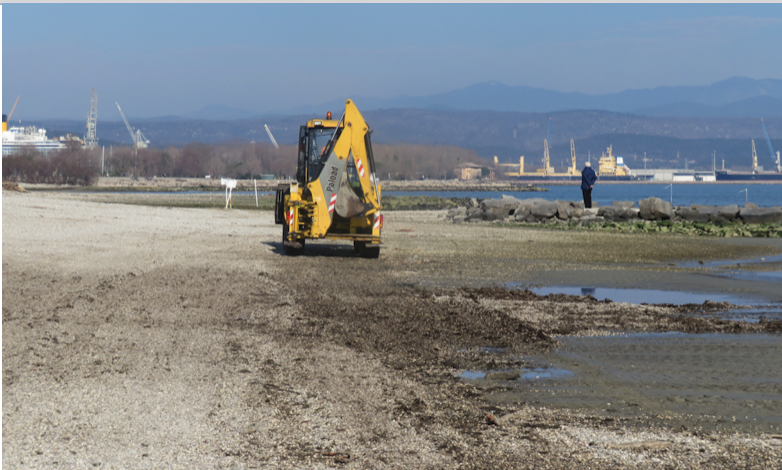
Heavy equipment for a "perfect" bathing beach, Adriatic Sea (Photo: Studer/fairfish)
Marine protection from the beach
For most people, marine conservation is probably something that happens far out there. The TV image in our minds: actions of bold guys on rubber dinghies in daring confrontations with large fishing vessels. But many people have this image in front of their feet once a year without even realising it: the beautifully prepared summer holiday beach - the caricature of a natural seashore.
- A negative example from Italy (German only)
- Positive examples from Mallorca (German only)
- A guide through problems and solutions on the beach
For most people, marine conservation could start right here. Why do we have this picture in our heads of an industrially straightened beach, perhaps even filled with important sand, as it is promoted by the tourism industry? What is so ugly about a natural beach that we could not be able to handle?
The shore of a body of water is an important habitat for numerous animal and plant species and the nursery for many aquatic animals. Low and high tides extend this habitat between sea and land; the constant change between water and dryness provides additional opportunities for many lifeforms.
Interference in the vulnerable balance of habitats between water and land can cause disruptions that reach even far out to sea. Beach tourism and its constructions along the coasts can therefore be quite problematic.